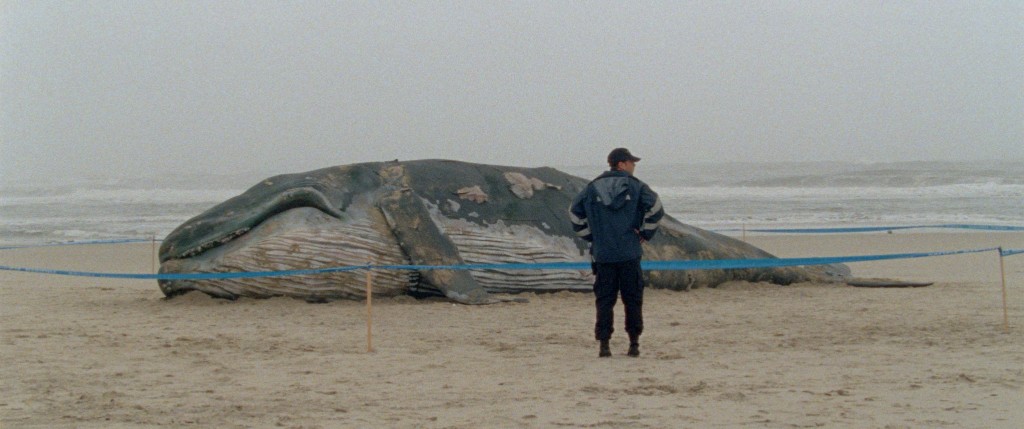Perhaps the most famous melody from Nikolai Rimsky-Korsakov’s Scheherazade, Op. 35, ‘The Kalendar Prince’, is a whirlwind of fanfare flourishes on the trombone and violin, containing the notes of a fantastical story that encompasses adventure and melancholy, inflecting the same melody with disparately differing timbres of emotion. Portuguese director Miguel Gomes can’t help but use Rimsky-Korsakov’s music at one point during the first part of his epic retelling of the Arabian Nights stories, subtitled The Restless One, and his inception-like narrative construction allows him to dig into such a fantastical, constructed mode of storytelling that the music perfectly accompanies such a wild approach. Gomes is just as at home in this florid, fairytale mode as he is in the mock-documentary in which the film opens, and such directorial dexterity is rare enough to recommend the film on that basis alone.
That The Restless One is as enthralling and politically alert as it is, then, is simply icing on the Pastel De Nata. Gomes sees a duty to contemporary social concerns, and details these in the film’s opening section, before performing a bold self-critical move and showing himself running away from his own film set, overwhelmed by the mammoth task he has set himself. Irony, then, that Gomes may as well be contemporary cinema’s equivalent of Kanye West, brazenly self-assured in taking aim at complex, provocative modern issues and doing so with a work of such astonishingly original and incisive artistry that any arrogance is entirely justified. Gomes responds to European austerity with dick jokes, and it’s almost Shakespearean in the brilliance of the crudity. It humbles, through barely veiled updates of centuries-old morality tales, the money-men who caused Portuguese society to crumble.

Initially, the film feels overwhelming, with the world drawn in faded, grainy grey that’s depressingly real, but Gomes recognises that the film needs this explicit grounding or its satirical storytelling might be misinterpreted. Moreover, this section gives actual voice to the people suffering in contemporary Portugal, with men laid off from the shipyards of Viana do Castelo heard in voiceover as the camera watchfully tracks them beneath torrential rain. As Gomes folds in layers of storytelling, like a pastry chef folding egg whites carefully into a mixture, the film lights up both emotionally and visually, using the figure of Scheherazade (Crista Alfaiate) as a structure to dive into short story vignettes that are fantastical in conception, satirical in nature and realistic in visualisation.
Online cinema service Mubi is releasing the three parts of Gomes’ Arabian Nights over the next three weeks, and while the place of The Restless One alongside its partner films remains to be seen, it stands alone as a masterful piece of modern cinema, perhaps overstuffed with fiery political satire that Luis Bunuel would be proud of and dazzling visual storytelling that makes a visit to your local arthouse cinema basically essential. Gomes brilliantly shows how classical storytelling can be used to reflect and critique contemporary society, from the bawdy humour of the first vignette to the compelling single takes in the third vignette about unemployed people banding together for an act of defiance. It showcases both the purity of cinema as a medium of storytelling and the complex moral quandries we can explore through art. It is bewitching, and it is not to be missed.
Arabian Nights: Volume 1 – The Restless One is in cinemas now. Volume 2 – The Desolate One follows on Friday 29 April, and Volume 3 – The Enchanted One on Friday 6 May.




